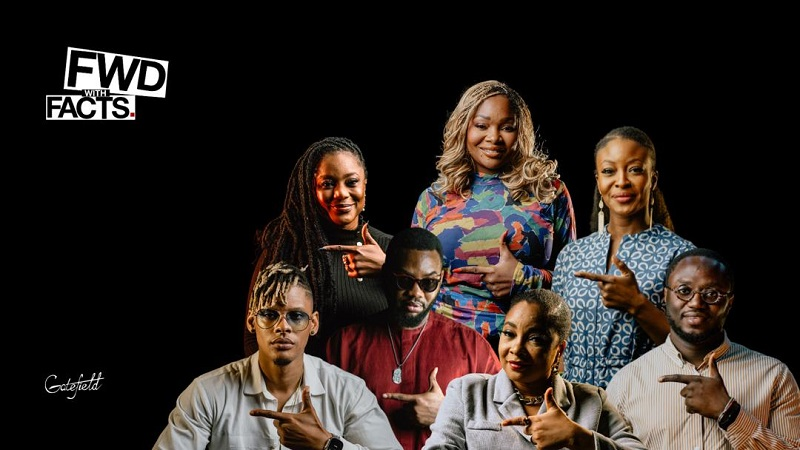A group of Nigerian celebrities has partnered with public strategy and media organisation Gatefield to launch a campaign against the growing problem of fake news and misinformation in the country.
The campaign, named #FWDWithFacts, aims to educate Nigerians on identifying and combating false information. It is supported by Luminate, a global philanthropic organisation.
In a statement on Thursday, Gatefield’s Advocacy Lead, Shirley Ewang, explained the objectives of the initiative, which includes reaching millions of Nigerians through media and grassroots engagement.
The campaign also seeks to hold large technology companies accountable for their role in the spread of fake news.
The statement read in part:
“The initiative aims to reach millions of Nigerians through mass media and on the ground, educating them about the dangers of fake news while calling for greater accountability from Big Tech companies.
“In 2018, a fake photo posted on Facebook was viewed 11,000 times, sparking an ethnic conflict in Plateau State, Nigeria, leading to the tragic deaths of 12 people. Unfortunately, this incident is not an isolated case.
“Misinformation campaigns across Africa have increased nearly 400% since 2022, affecting social and political stability, with Nigeria disproportionately affected.

“During Nigeria’s 2023 Presidential elections, fact-checkers reported as much as 100,000 false claims, shared across social media on a daily basis. With about nine in ten young Nigerians getting their news online, a combination of low media literacy and weak content moderation practices are fuelling the proliferation of fake news and escalating confusion, division, and violence.”
The campaign, supported by celebrities such as Toolz, Linda Ejiofor, Elozonam, Folu Storms, Ibrahim Suleiman, Kiki Omeili, and JayOnAir, aims to promote better content moderation from tech giants through petitions directed at these companies and government regulators.
Ewang emphasised the need for global standards to apply to Africa, not just Western countries, stating:
“Regulatory requirements such as Europe’s Digital Services Act, which prioritizes transparency and proactive moderation, should not be an exclusive privilege of the West.”
She criticised companies like Meta and X (formerly Twitter) for scaling back their content moderation efforts in Africa while relying on algorithms that amplify harmful content. This, she said, makes it easier for fake news to spread, especially during crucial periods like elections.
Actor and radio personality Kiki Omeili added her voice to the cause, sharing personal observations of the damage caused by fake news.
“I have personally seen families, careers, relationships and reputations being destroyed because of people spreading fake news on the internet with no repercussions. It is important that people think twice and verify before contributing to destroying what one has taken so long to build,” she said.
The #FWDWithFacts campaign calls on Nigerians to verify information before sharing and urges social media platforms to take stronger measures to combat the spread of fake news.


